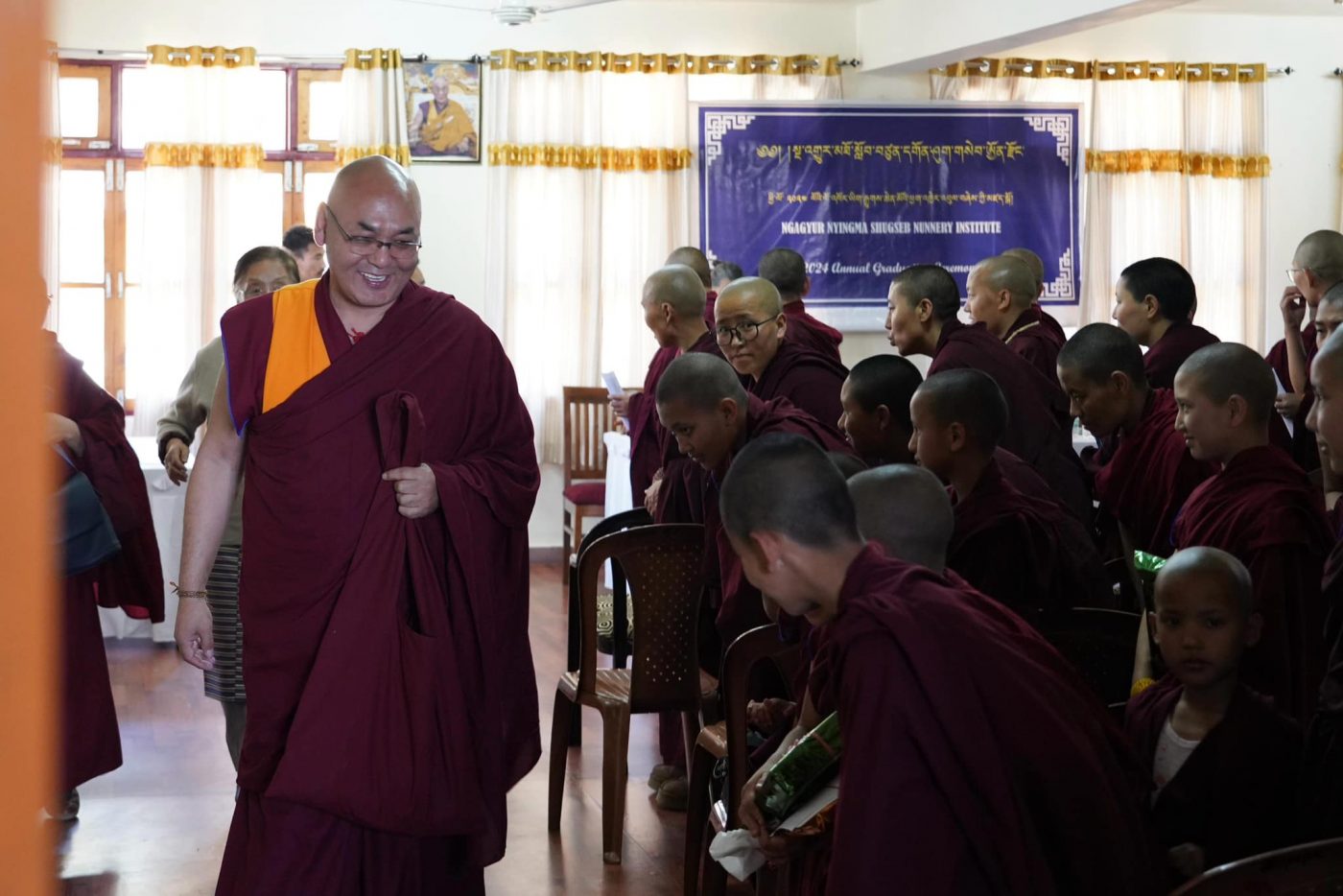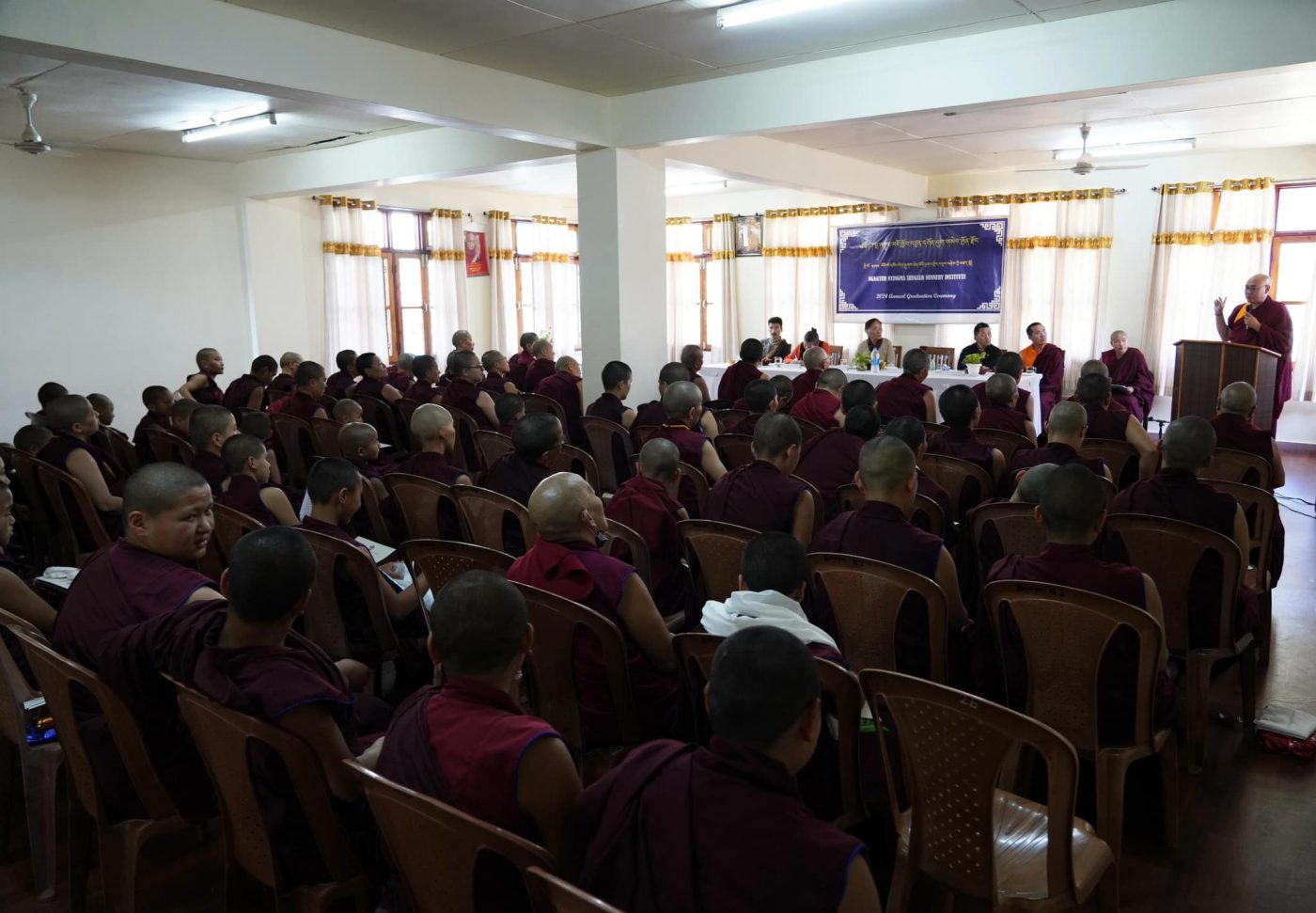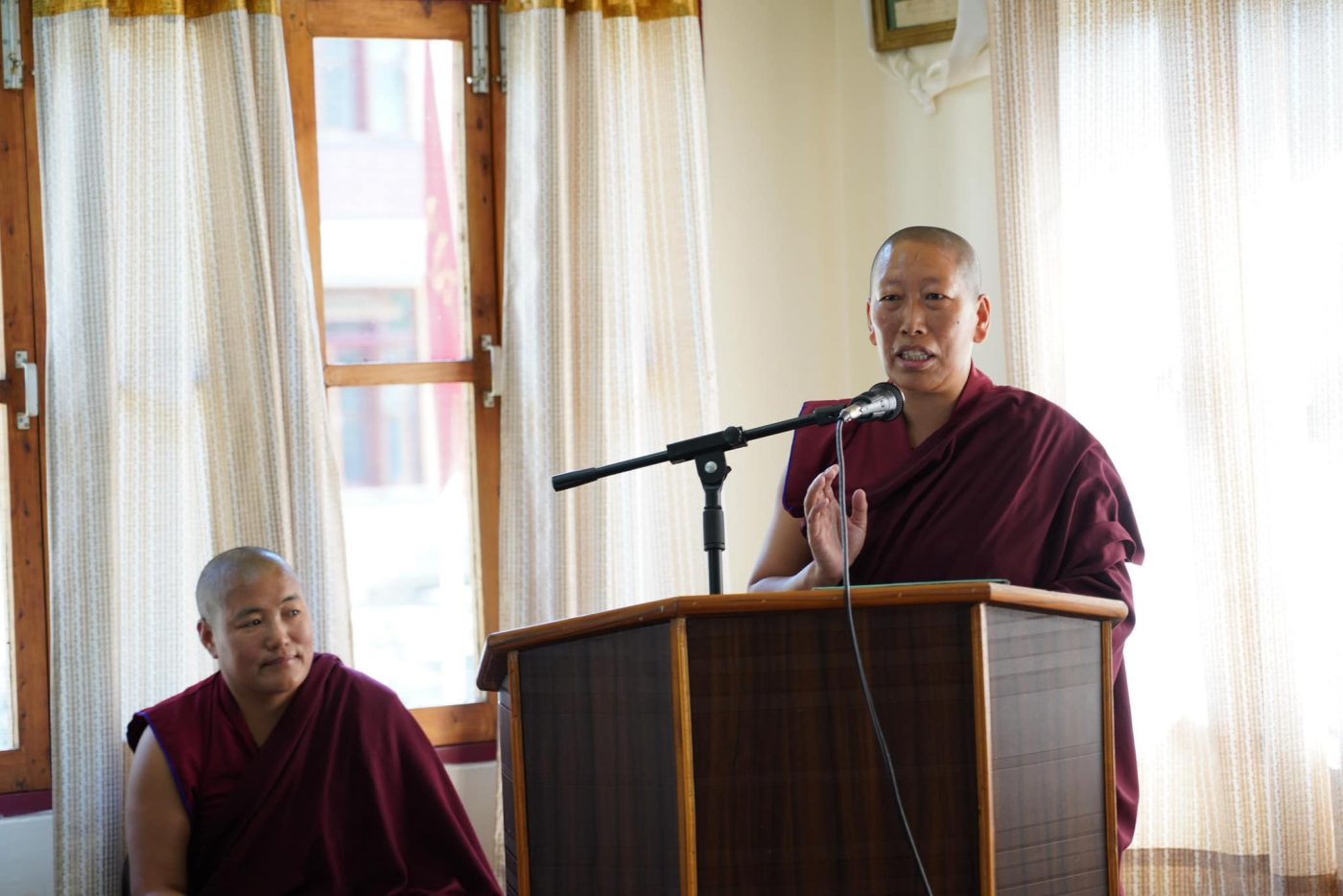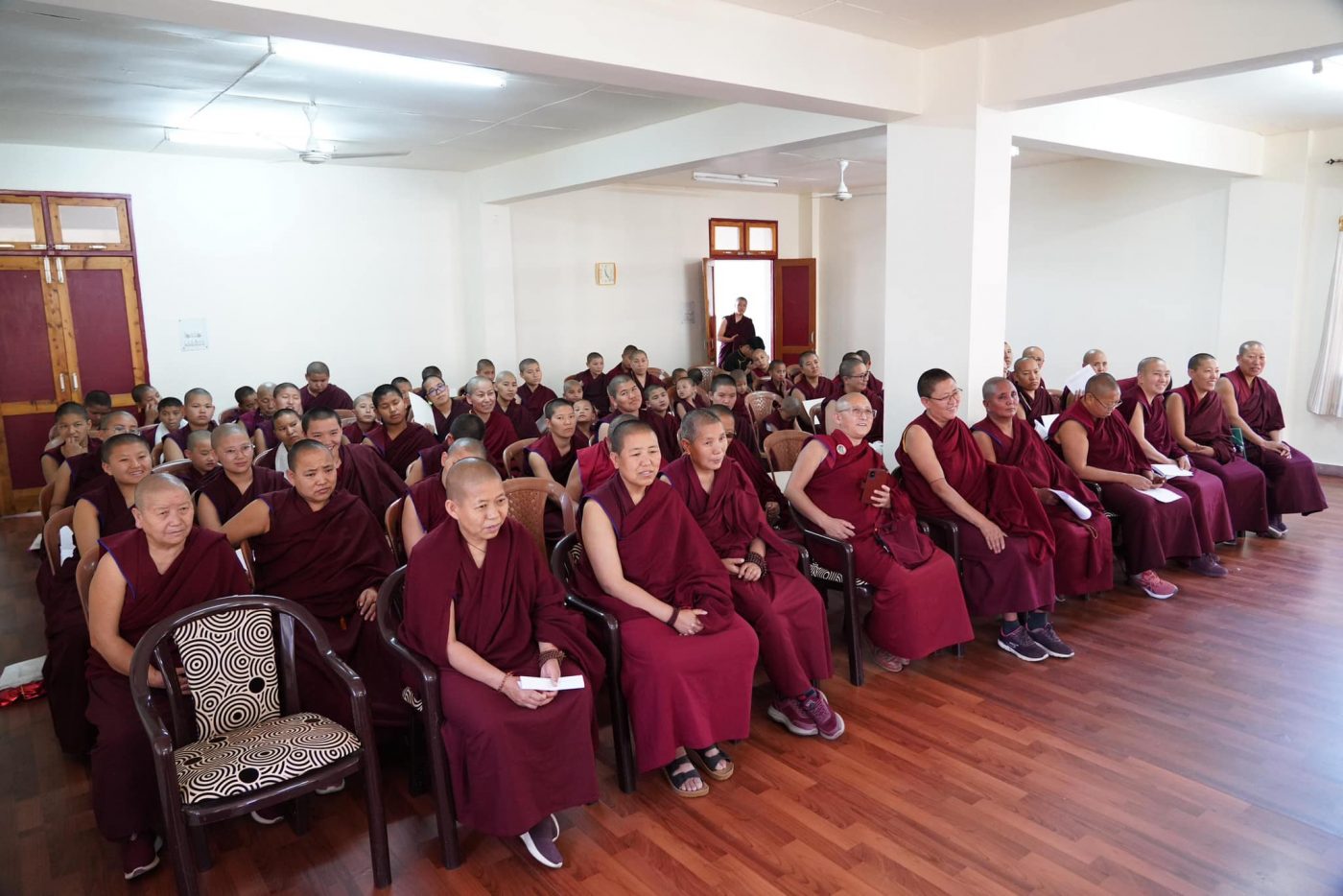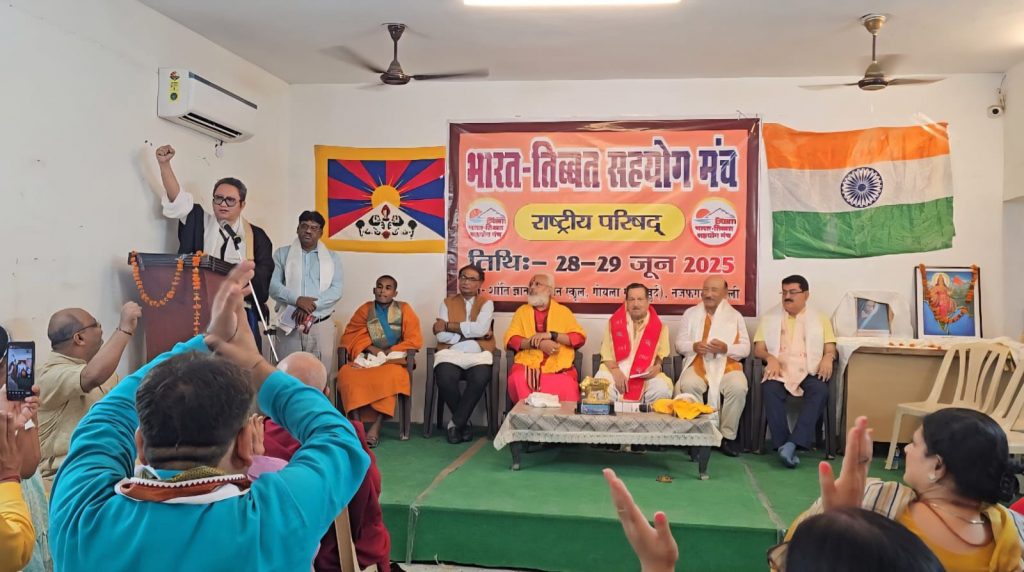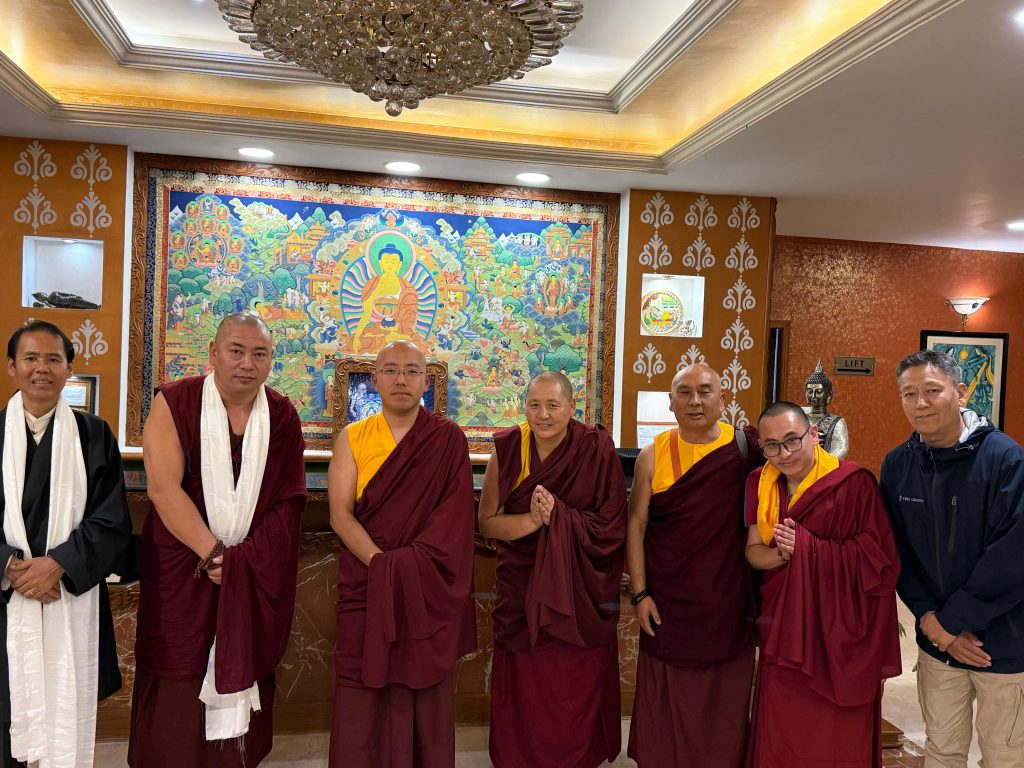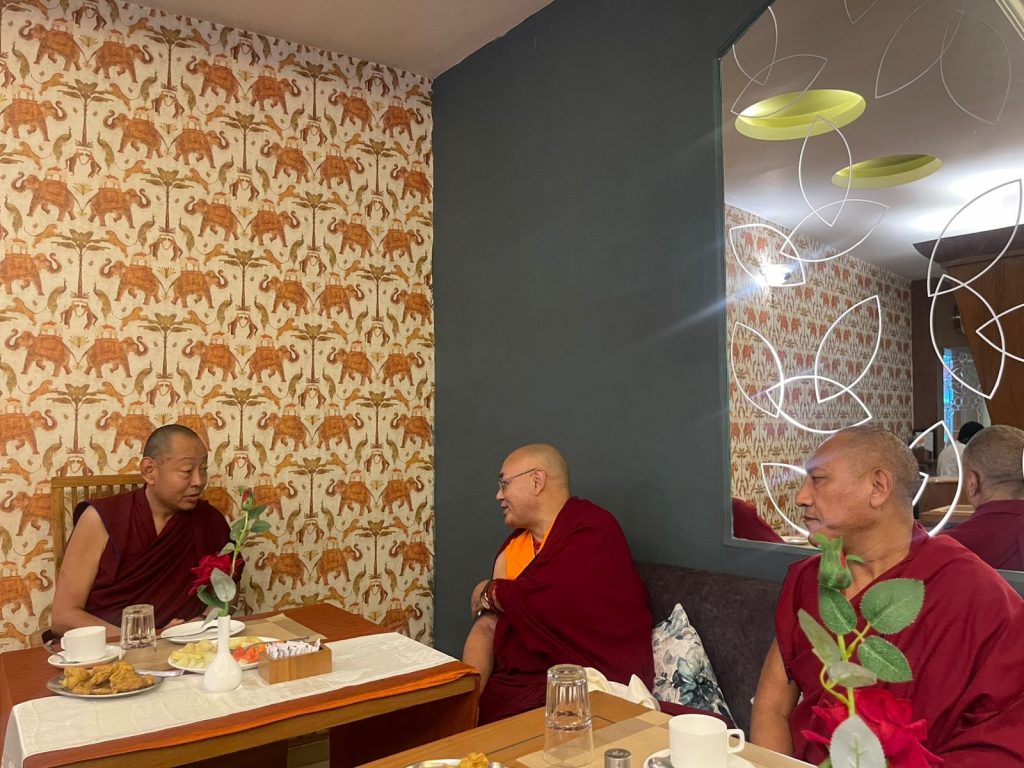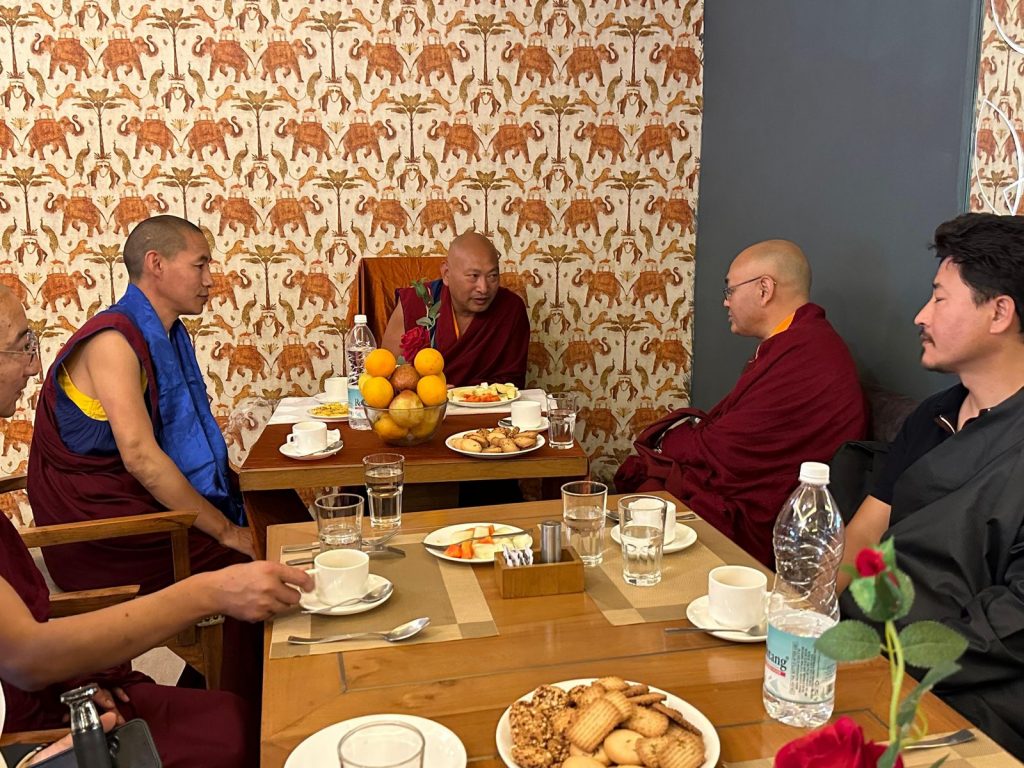
Dharamshala, 5th April 2025: The Ngagyur Shugseb Nunnery Institute held its annual graduation ceremony on 5th April, 2025, at the institute. The ceremony was honored by the presence of Speaker Khenpo Sonam Tenphel of the Tibetan Parliament-in-Exile as the Chief Guest, alongside Special Advisor Kasur Rinchen Khandro, Secretary Dudrul Dorjee from the Department of Religion and Culture, and Nangsa Choedon, Director of the Tibetan Nuns Project.
In his address, the Speaker emphasized the special responsibilities inherent in monastic life, stressing the importance of continuous mindfulness beyond routine practices. Drawing from the teachings of Acharya Vasubandhu, the Speaker outlined the core monastic educational path, which includes maintaining discipline, engaging in comprehensive study and contemplation, and dedicating oneself to diligent meditation. He noted that this approach has formed the foundation for accomplished scholars across all Tibetan Buddhist traditions.
The Speaker provided detailed explanations of these educational pillars, including maintaining discipline through adherence to monastic vows and ethical conduct; learning through study by pursuing education with focused attention; contemplation, which involves repeatedly examining teachings through scriptural authority and reasoning; and meditation, which focuses on internalizing knowledge to transform one’s life.
He emphasized that true education should lead to visible personal transformation, stating, “If you remain unchanged year after year, your study, contemplation, and meditation are inadequate.” The Speaker urged students not only to change themselves but also to positively influence those around them.
The Speaker congratulated the award recipients and offered motivation to those who ranked second and third, encouraging them to strive for the top position in the future. He reminded the students that multiple individuals can achieve the first rank through dedicated effort.
Quoting from Shantideva’s Bodhicharyavatara, he said, “There is nothing that does not become easier through familiarization,” and added the Tibetan proverb, “All activities are practice; who is skilled among practitioners?” to underline the idea that consistent effort inevitably yields results.
The Speaker further highlighted the importance of diligence and comprehensive education, quoting The Words of My Perfect Teacher to discuss the relationship between wisdom and diligence. He noted that moderate wisdom, paired with excellent diligence, can yield superior results compared to excellent wisdom coupled with poor diligence.
He also outlined the traditional Tibetan curriculum, which includes five major and five minor sciences, quoting Lord Maitreya’s teaching that without mastering these sciences, “even the Supreme Nobles cannot attain omniscience.” The Speaker stressed that, in addition to traditional knowledge, students should also pursue modern sciences and languages to maximize their contributions to Tibetan religion, culture, and society.
The Speaker warned of the irreparable damage that educational deficiencies can cause, particularly in relation to cultural and linguistic preservation. He concluded by calling for harmony among all present, quoting Bodhicharyavatara: “May the Sangha always be in harmony, and may the purposes of the Sangha be fulfilled.”
Throughout the ceremony, various achievements were recognized. The Speaker presented certificates to students from the ninth, seventh, and fourth years of the philosophical college. Other dignitaries also awarded certificates to first-year philosophical college students, as well as first-year and fourth-year students, primary school students, and those who received special recognition for root text memorization.
The event featured speeches from Rinchen Khandro, former minister and special advisor to the Tibetan Nuns Project; Dudrul Dorjee, Secretary of the Department of Religion and Culture; and Nangsa Choedon, Director of the Tibetan Nuns Project.





